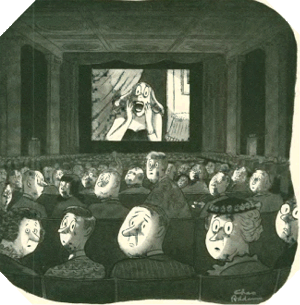wrote 39 operas before he was 40
|
This rather jocund-looking gentleman pictured here in 1858 is the famous Italian composer Gioachino Rossini (1792-1868) who wrote 39 operas before he was 40, and retired thereafter to a leisurely life in Paris where his house was a centre of artistic society. His best-known operas include the The Barber of Seville and William Tell. He was also a well-known gourmand and an excellent amateur chef his entire life. Even to the present day there are dishes named with the appendage "alla Rossini" that were either created by him or specifically for him, probably the most famous being "Tournedos Rossini".
his music "has beautiful moments but awful quarter hours”.
|
It was in Paris around the time that the above photo was taken that Rossini was visited by a much younger Richard Wagner (1813-83) [left], the only time these two giants of the music world would ever meet. Even though Rossini maintained a rather ambivalent view of Wagner's works, amid a wide-ranging conversation when they lingered on the subject of another music giant, Beethoven (1770-1827), they both readily agreed he was the most influential composer of all time. Rossini shared with Wagner vivid recollections of the great composer having paid him a visit, also a one-time event, some 35 years earlier in 1822. He was then aged 51, deaf, cantankerous and in failing health. At the time the operas of Rossini were the rage, and Beethoven [below] was both irritated and fascinated by the phenomenon, curiously a somewhat similar stance that Rossini held for Wagner's music, famously observing it "has beautiful moments but awful quarter hours”. What seems to have struck Rossini most in his visit with Beethoven, was the exceeding sadness expressed in the composer’s face. Even then, he was received kindly but with characteristic brusqueness, Beethoven opening the conversation by complimenting him on the “Barber” while also making condescending remarks about Italians, and telling him with sarcastic candor (communicated in writing) “never try to write anything else but opera buffa; any other style would do violence to your nature.”
Shocked by the squalid living conditions in which he found Beethoven, Rossini talked with Wagner about how he had tried unsuccessfully to organize a subscription for funds to assist the man. Apparently potential donors were skeptical about the practicality of such a generous gesture, given Beethoven’s legendary erratic irascible nature.





No comments:
Post a Comment